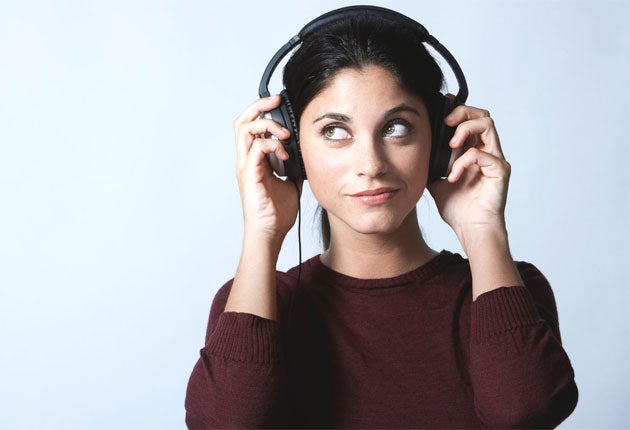Warning: iPods can damage your hearing
Listening to MP3 players at high volume increases the risk of deafness in later life, expert warns

Your support helps us to tell the story
From reproductive rights to climate change to Big Tech, The Independent is on the ground when the story is developing. Whether it's investigating the financials of Elon Musk's pro-Trump PAC or producing our latest documentary, 'The A Word', which shines a light on the American women fighting for reproductive rights, we know how important it is to parse out the facts from the messaging.
At such a critical moment in US history, we need reporters on the ground. Your donation allows us to keep sending journalists to speak to both sides of the story.
The Independent is trusted by Americans across the entire political spectrum. And unlike many other quality news outlets, we choose not to lock Americans out of our reporting and analysis with paywalls. We believe quality journalism should be available to everyone, paid for by those who can afford it.
Your support makes all the difference.In the past it was labourers in noisy factories and soldiers using firearms who lost their hearing. Now it is young people who crank up the sound on their personal music players.
A generation of children and young adults are risking deafness in middle age and beyond by listening to their iPods and MP3 players at high volume for several hours a day, a specialist has warned.
Inserting earphones into the ear canal intensifies the volume which can reach over 120 decibels, equivalent to the noise from a jet engine, according to Professor Peter Rabinowitz of the Occupational and Environmental Medicine programme at Yale University.
Deafness, including mild to moderate hearing loss, is one of the commonest chronic medical conditions in older people and the most frequent cause is excessive long-term exposure to noise which damages the hair cells in the inner ear. The Royal National Institute for the Deaf said two thirds of MP3 player users listened to music at volumes greater than 85 decibels.
Several small studies have found a link between use of the players and poorer hearing in young people. But evidence on whether young people as a whole are losing their hearing faster than previous generations is mixed – probably because the use of the players has only recently become ubiquitous.
Writing in the British Medical Journal, Professor Rabinowitz said the use of personal music players had "grown faster than our ability to assess their potential health consequences". Surveys show more than 90 per cent of young people listen to the devices, often for several hours a day and at maximum volume.
Damage to hearing is not the only risk. Some studies have shown that listening to an iPod or MP3 player while driving can interfere with concentration in the same way as using a mobile phone.
Calling for more surveys of the hearing of young people, Professor Rabinowitz said that, given the extent and seriousness of the potential harmful effects of the devices, even though evidence was lacking, it was reasonable to encourage patients to protect themselves.
"Clinicians should advise current users to avoid listening to personal music players at maximum volume. Regarding other safety concerns, it would be prudent to advise removing earphones while driving and performing other safety-sensitive tasks.
"As clinicians come to grips with how electronic devices that afford so much pleasure may also produce harm, personal music players provide a reminder that our hunger for new technology should be accompanied by equally vigorous efforts to understand and manage the health consequences of changing lifestyles," he wrote.
Emma Harrison, of the Royal National Institute for the Deaf, said: "Peter Rabinowitz is right to raise concern over hearing loss from personal music players. Our research shows that 66 per cent of personal music player users are listening to music at louder than 85 decibels, which, according to the World Health Organisation, can cause permanent hearing damage over time.
"The RNID has been working with the the European Union to raise awareness of this problem because people regularly use these devices and are often not aware that they could be putting their hearing at risk.
"As the EU develops new regulations for personal music players, it is vital that manufacturers and governments are supportive of these plans and work together to protect the hearing of a generation of music lovers."
Join our commenting forum
Join thought-provoking conversations, follow other Independent readers and see their replies
Comments